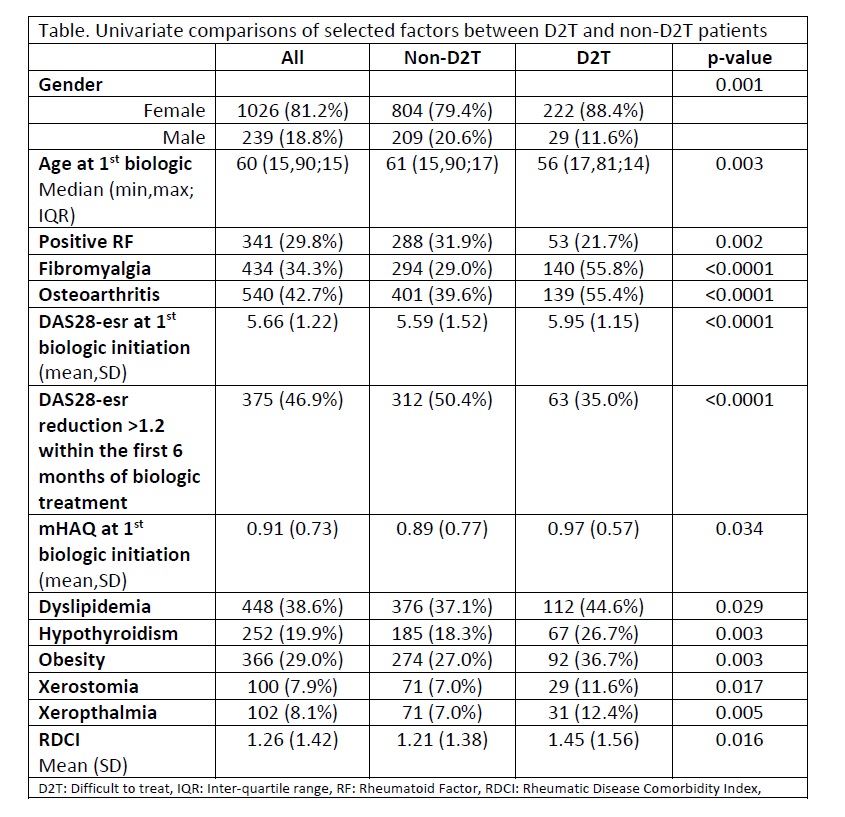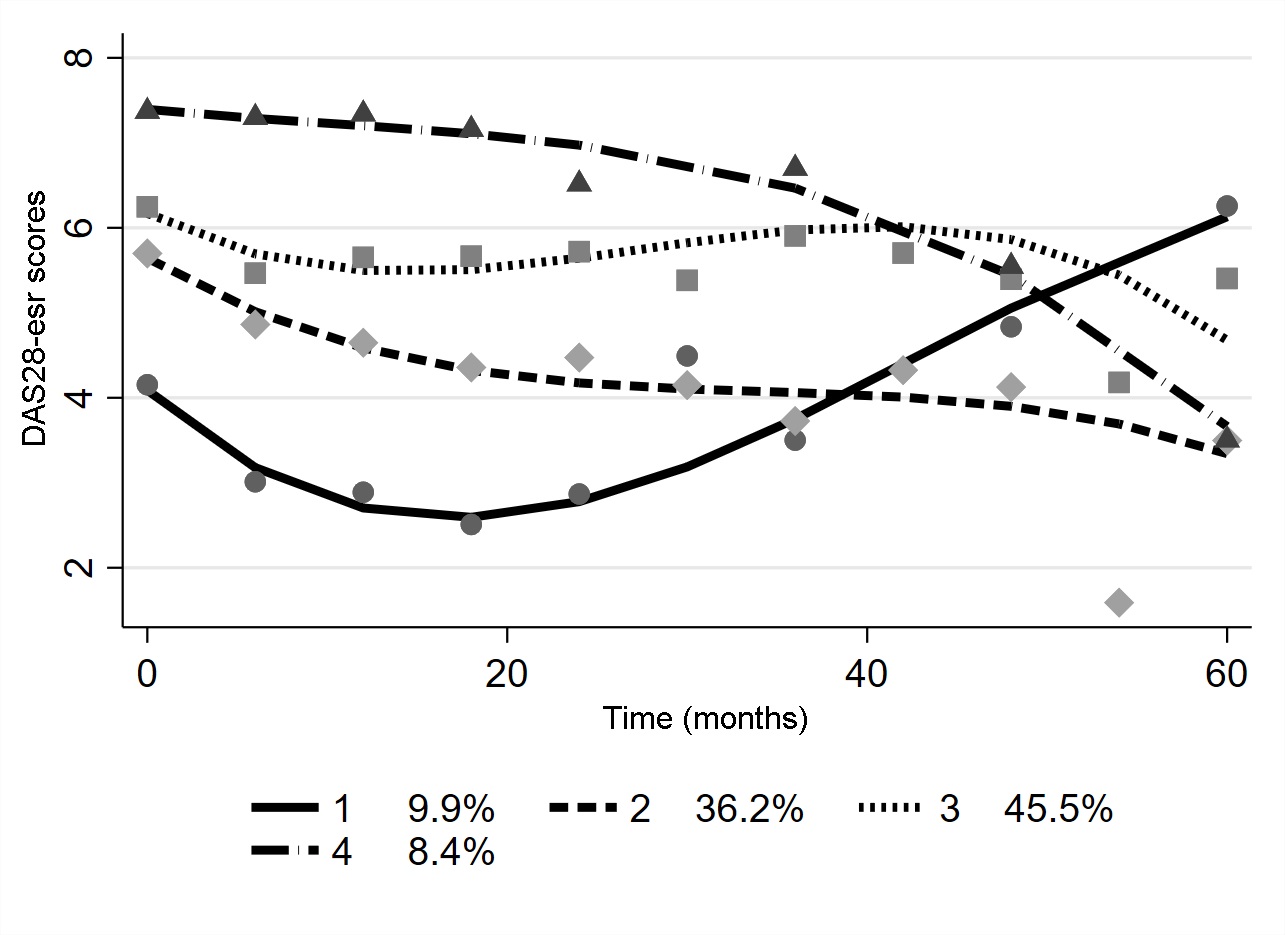Session Information
Date: Sunday, November 12, 2023
Title: (0380–0422) RA – Diagnosis, Manifestations, and Outcomes Poster I
Session Type: Poster Session A
Session Time: 9:00AM-11:00AM
Background/Purpose: Early detection of difficult to treat (D2T) RA patients as well as better characterization of their long-term course represent unresolved issues. Herein we aimed for a detailed analysis of predictors and assessed for heterogeneity of long-term prognosis within D2T patients.
Methods: This was an analysis from “University of Crete Rheumatology Clinic Registry (UCRCR)”, a prospective single center study. We analyzed all patients included form May 2000 until April 2022 and applied the EULAR definition of D2T. Univariate and multivariate analysis of sociodemographic and RA-related characteristics at start of first bDMARDs or tsDMARD were analysed as predictors of D2T. Heterogeneity (HAQ and DAS28 trajectories) withing D2T group was analysed during a follow-up period of 60 months applying latent class trajectory analysis.
Results: 251 out of 1264 patients (19.9%) identified as D2T. Female gender, age at 1st biologic, RF negative, higher RDCI scores, Sicca symptoms, disease duration, higher DAS28 and HAQ at baseline and failure to decrease DAS28 >1.2 at 6 months were all associated with D2T grouping (p < 0.05). Patients classified as D2T suffered from osteoarthritis, fibromyalgia, dyslipidemia, hypothyroidism and obesity at significantly higher rates compared to non-D2T patients (p < 0.05 for all). Latent class trajectory analysis during 60 months of follow-up, indicated that D2T patients do not constitute a homogenous group; interestingly distinct disease activity trajectory groups could be differentiated while ~36% of them showed a more favorable outcome but never reaching low disease activity (DAS 28 ESR~ 3.8 at 60 months) (Figure 1).
Conclusion: D2T patients represent a heterogenous group of RA patients in terms of long-term disease course. Age, comorbidities, inflammatory burden and compromised function at start of bDMARD/tsDMARD may characterize D2T group.
To cite this abstract in AMA style:
Flouri I, Bertsias A, Repa A, Avgoustidis N, Kalogiannaki E, Pitsigavdaki S, Bertsias G, Sidiropoulos P. Heterogeneity Within a “difficult to Treat” Rheumatoid Arthritis Patients Cohort: 36% May Have a More Benign Course and Have Distinct Characteristics at bDMARD or tsDMARD Initiation [abstract]. Arthritis Rheumatol. 2023; 75 (suppl 9). https://acrabstracts.org/abstract/heterogeneity-within-a-difficult-to-treat-rheumatoid-arthritis-patients-cohort-36-may-have-a-more-benign-course-and-have-distinct-characteristics-at-bdmard-or-tsdmard-initiation/. Accessed .« Back to ACR Convergence 2023
ACR Meeting Abstracts - https://acrabstracts.org/abstract/heterogeneity-within-a-difficult-to-treat-rheumatoid-arthritis-patients-cohort-36-may-have-a-more-benign-course-and-have-distinct-characteristics-at-bdmard-or-tsdmard-initiation/


